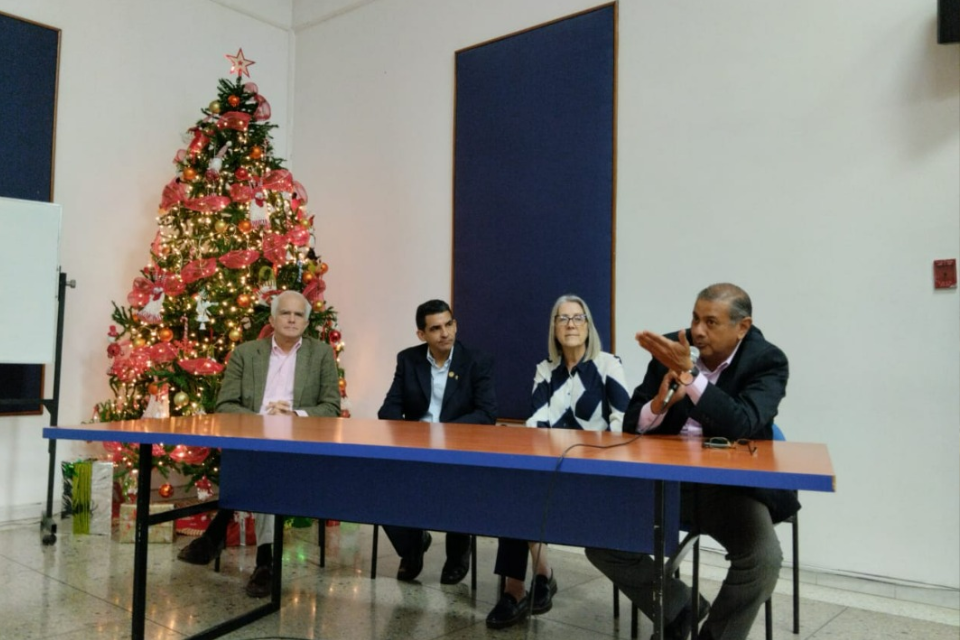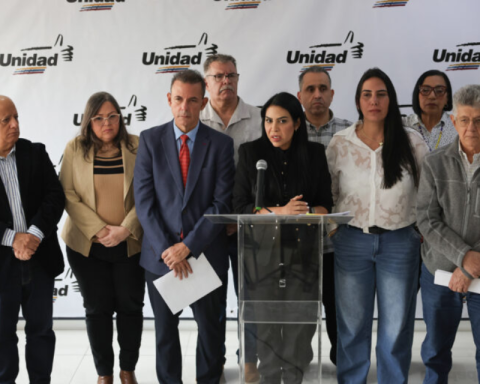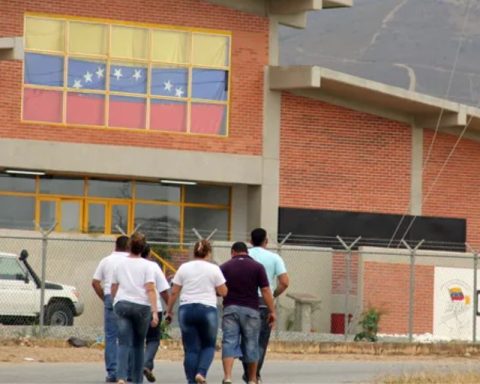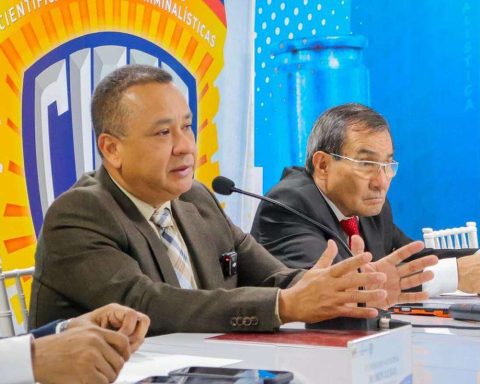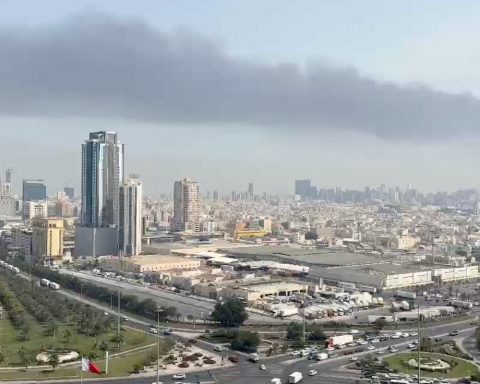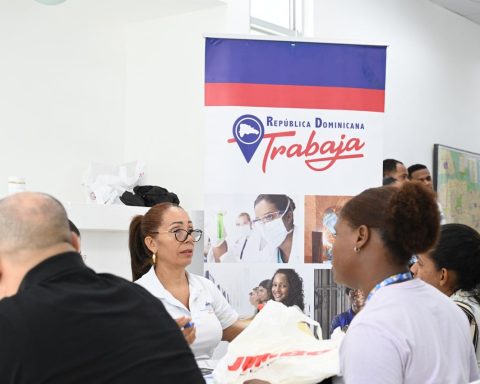Freddy Lujano, president of the Chamber of Industrialists of Aragua, stressed that the recovery of productivity is essential as a step prior to the regional industrial reactivation
The Center for the Dissemination of Economic Knowledge for Freedom (Cedice Libertad) carried out the “Aragua Futuro” program in the spaces of the Chamber of Industrialists of Maracay. The project evaluated the potential of Aragua as a state that promotes the development of the region in a “context where economic freedom and work rules are clear and transparent.” Two of the consensuses analyzed by a panel of experts were industrialization and dual training.
The president of Cedice Libertad, Carlos Blohm; Freddy Lujano, from the Chamber of Industrialists of Aragua, and Leonardo Cordone, director of the Venezuelan-Swiss Institute Henri Pittier, made a diagnosis of the situation in the state from the institutional, economic and educational point of view and discussed how it can be reversed. the current situation.
Blohm estimated that in Aragua there is pressure on the profitability of companies because there is no commercial openness, healthy and free competition, in addition to having to deal with increases in taxes, production costs, services and labor.
“In Aragua as in the whole country, institutional problems persist: disrespect for private property, draconian laws, lack of reliability in public services, increase in national and local taxes, scarcity and high cost of financing, insecurity is high and there is volatility in the currency,” Blohm explained.
Also read: Governments of Colombia and Venezuela met with businessmen from both countries
In his opinion, in Aragua there is potential. “It is an industrial enclave with established companies, close to Caracas and Valencia, with a tradition of work in its textile and aviation industry, with fertile lands and great agricultural vocation, with a coast and a mountain range of great tourist potential,” he pointed out. the president of Cedice Libertad.
For Blohm, “this scenario will change within a framework of economic and political freedom, with the rule of law and that price and exchange controls disappear, a stable currency is established, credit returns to the local financial system with competitive interests for the industry” .
The president of the entity’s Chamber of Industrialists, Freddy Lujano, stressed that the recovery of productivity is basic as a step prior to the regional industrial reactivation.
Lujano warned that the fiscal voracity of the current government administration is not conducive to productivity. «Too much tax and parafiscal burden do not allow free competition and the operation of companies. In this sense, the union leader proposed that “a tax reform must be promoted, by consensus, according to productivity.”
Aragua has been affected since last October 8 when it occurred the tragedy of Las Tejerías. Luigi Pisella, president of the Venezuelan Confederation of Industrialists (Conindustria) clarified to SuchWhich the complexity of raising the registry of the affected industries in that region. He assured that Aragua, and specifically Las Tejerías, is one of the areas with the most industrial activity in the country and highlighted its varietybecause there are textile industries, food processors, vehicle assemblers, plastics, among others.
education as a foundation
At the meeting, Leonardo Cordone, president of the Venezuelan-Swiss Henri Pittier Institute, presented the “Alliance for Knowledge” which is made up of the Venezuelan-Swiss Chamber of Commerce and Industry and associated companies. The purpose of the dual training program is to train the technicians needed by the state of Aragua. “This is based on the Swiss educational system, where technical training is privileged,” Cordone said.
He revealed that “dual training trains the technicians that the industry needs and for Aragua this scheme can work. We give additional practical/theoretical hours according to the needs of the young person. We make sure that the trainee acquires and masters the competition. We offer three trades: electricity, mechanics and electromechanics and include techniques such as computing, autocad, financial education, among others”.
With information from a press release.
Post Views: 444
